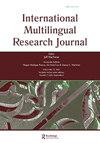Translanguaging: a pedagogical concept that went wandering
IF 2.1
1区 文学
Q2 EDUCATION & EDUCATIONAL RESEARCH
引用次数: 9
Abstract
ABSTRACT The term translanguaging goes back more than a quarter-century, originating in the domain of the teaching of Welsh, but it has over the years developed a wide variety of usages. While translanguaging is claimed to have advantages over other language education models, many of its new interpretations, which take it some distance from its original pedagogical sense, are seen by some as problematic. The new conceptualizations go beyond the pedagogical practice of drawing on multiple language varieties in order to facilitate learning; they, indeed, often extend to general, overarching accounts of language deployment among multilinguals, which sometimes do not differentiate between individual language competencies. Proponents of translanguaging in its more traditional sense point to pedagogical advantages and opportunities it presents in the (language) classroom. Even in this context, however, there is debate about the appropriateness of utilizing translanguaging in, for example, minority language maintenance contexts. In this article, we explore the variety of uses of the term translanguaging and the attendant claims attached to them. Our conclusion is that the critical factor in the capacity of the term to retain coherence and intelligibility is the maintenance of constant awareness of and attention to the perspective in which it is applied.译语:一个迷失方向的教学概念
翻译一词可以追溯到25年前,起源于威尔士语教学领域,但多年来它已经发展出各种各样的用法。虽然译语被认为比其他语言教育模式有优势,但它的许多新解释,与它最初的教学意义有一定距离,被一些人认为是有问题的。新的概念超越了利用多种语言来促进学习的教学实践;事实上,它们经常延伸到对多语种之间语言部署的一般、总体的描述,有时不区分个人的语言能力。传统意义上的跨语言的支持者指出它在(语言)课堂上提供的教学优势和机会。然而,即使在这种情况下,也存在关于在例如少数民族语言维护环境中使用译语的适当性的争论。在本文中,我们将探讨术语翻译的各种用法以及与之相关的要求。我们的结论是,术语保持连贯性和可理解性的能力的关键因素是保持对其应用角度的持续意识和关注。
本文章由计算机程序翻译,如有差异,请以英文原文为准。
求助全文
约1分钟内获得全文
求助全文
来源期刊
CiteScore
4.10
自引率
4.80%
发文量
19
期刊介绍:
The International Multilingual Research Journal (IMRJ) invites scholarly contributions with strong interdisciplinary perspectives to understand and promote bi/multilingualism, bi/multi-literacy, and linguistic democracy. The journal’s focus is on these topics as related to languages other than English as well as dialectal variations of English. It has three thematic emphases: the intersection of language and culture, the dialectics of the local and global, and comparative models within and across contexts. IMRJ is committed to promoting equity, access, and social justice in education, and to offering accessible research and policy analyses to better inform scholars, educators, students, and policy makers. IMRJ is particularly interested in scholarship grounded in interdisciplinary frameworks that offer insights from linguistics, applied linguistics, education, globalization and immigration studies, cultural psychology, linguistic and psychological anthropology, sociolinguistics, literacy studies, post-colonial studies, critical race theory, and critical theory and pedagogy. It seeks theoretical and empirical scholarship with implications for research, policy, and practice. Submissions of research articles based on quantitative, qualitative, and mixed methods are encouraged. The journal includes book reviews and two occasional sections: Perspectives and Research Notes. Perspectives allows for informed debate and exchanges on current issues and hot topics related to bi/multilingualism, bi/multi-literacy, and linguistic democracy from research, practice, and policy perspectives. Research Notes are shorter submissions that provide updates on major research projects and trends in the field.

 求助内容:
求助内容: 应助结果提醒方式:
应助结果提醒方式:


